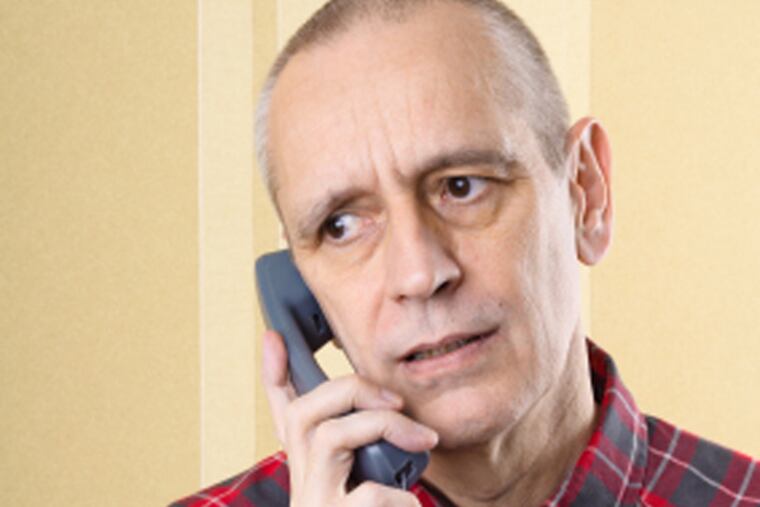Beware scammers out to get your numbers
The phone conversation starts with a friendly voice claiming to be from the government, calling to tell you about the great new services for Medicare recipients under the Affordable Care Act.

The phone conversation starts with a friendly voice claiming to be from the government, calling to tell you about the great new services for Medicare recipients under the Affordable Care Act.
To get those new ACA benefits, there's a one-time fee, which you can pay with a credit or debit card. And, oh, the caller can help by taking your information right over the phone.
Don't reach for your wallet. It's a scam. If you are a Medicare recipient, there is no reason to care a whit about the ACA. True, you will enjoy some new preventive services, and your medication doughnut hole will shrink in coming years.
And to get those benefits all you have to do is - nothing.
You don't have to log on to healthcare.gov, pay a fee, get a new Medicare card, or sign up for a special ACA/Medicare card.
But scammers aren't easily deterred. They're riding the confusion from the rollout of the ACA website to bilk personal information and money from trusting people.
"We are getting direct reports from our volunteers who are out doing public presentations that beneficiaries are confused," said Rebecca Nurick, program manager for the Pennsylvania Senior Medicare Patrol. "Audiences are definitely asking about the ACA because they are not sure whether or not it applies to them."
Workers at Social Security and Medicare will never call, e-mail, text, or knock on your door.
That said, the scams now circulating are the typical trickery used to elicit Social Security and Medicare numbers (often one and the same), or bank account and credit card numbers.
"Scammers see an opportunity in a new program that has been somewhat confusing to the general population, and they capitalize on that," Nurick said. "Many seniors are scared that they will lose coverage, or they are confused about the changes, so they are willing to believe someone who is offering help."
ACA phone scams seem to follow a pattern, Nurick said. The scam starts with a caller talking about the new ACA benefits. The caller may ask for a fee or say you need an ACA card to go with your Medicare card. To get the ACA card, the caller needs your Medicare card number to confirm that you are eligible.
"They are not soliciting bank account information, per se, but they are trying to get a Medicare number," said Nurick, whose volunteer group shows Medicare and Medicaid recipients how to protect, detect, and report fraud.
Some scammers are sending out mass mailings. The letters look official and almost always ask for personal information.
There are also reports scammers are resorting to intimidation or outright threats.
"They will threaten people that they will lose their benefits if they don't sign up for" ACA benefits, Nurick said. In those cases, she said, "it's shrewd to be rude. Just hang up."
The same privacy rules apply when there's an "ACA canvasser" at your door. There have been reports of scammers going door to door impersonating well-known groups.
Enroll America, the ACA consumer-outreach campaign, is perhaps the largest in Philadelphia and the suburbs. Its volunteers canvass door to door, set up tables at events, and work with local groups, faith-based groups, and the gay and lesbian community.
Its volunteers must follow strict guidelines, said Paydon Miller, the group's Pennsylvania communications lead. They go through a two-hour certification course and are taught what to say. "The volunteers only give information to people about certified navigators and certified application counselors."
Enroll America volunteers will always introduce themselves and say whom they represent, Miller said.
"The only thing we have people fill out is their name and some contact information so that, down the line, we can reach out to them and connect them with a navigator," Miller said. "We are not asking for Social Security numbers. . . . We are just looking to follow up and help them get connected with people who can help them get enrolled."
This article was produced in partnership with Kaiser Health News, an editorially independent program of the Henry J. Kaiser Family Foundation, a nonprofit, nonpartisan health-policy research and communication organization not affiliated with Kaiser Permanente.